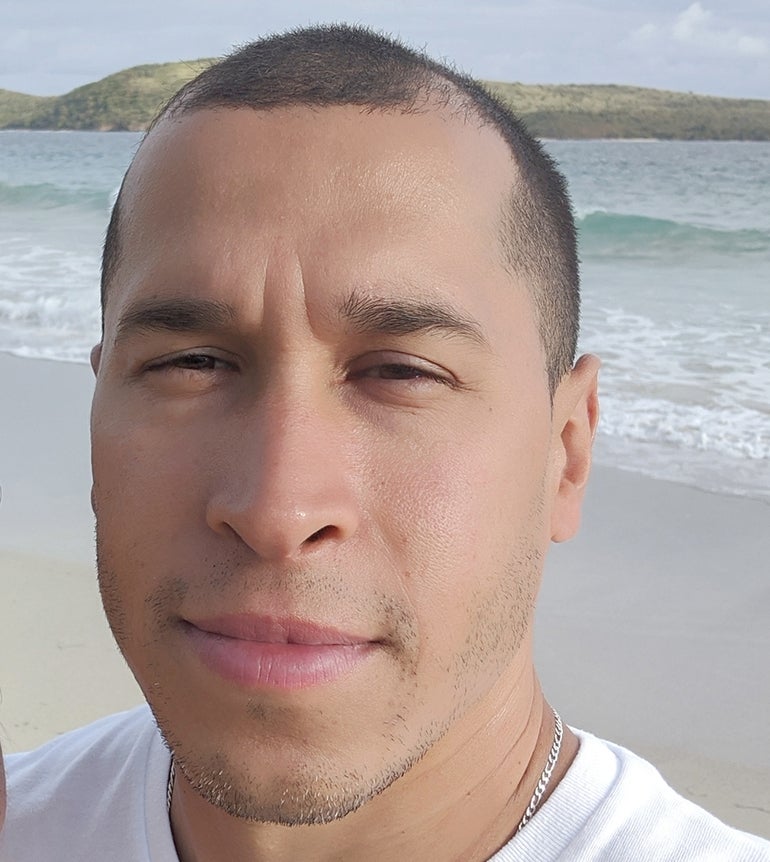COVID Champions: Zuriel Ayala keeps COVID patients breathing
 Photo | Courtesy of Zuriel Ayala
Zuriel Ayala, respiratory therapist at UMass Memorial Medical Center
Photo | Courtesy of Zuriel Ayala
Zuriel Ayala, respiratory therapist at UMass Memorial Medical Center
- Zuriel Ayala
- Respiratory therapist
- UMass Memorial Medical Center in Worcester
More Information
Zuriel Ayala, a former U.S. Marine corporal turned Air Force technical sergeant, and active respiratory therapist, was home from a six-month tour of Kuwait for only a month before he began responding to the coronavirus pandemic at UMass Memorial Medical Center in Worcester.
Originally, he planned to take some time off and ease himself back into the respiratory therapy field, spending time with his family, with whom he lives. Instead, he found himself working night shifts, avoiding the very people he wanted to see as he attempted to help his community respond to the coronavirus pandemic, while also keeping his home safe.
“I basically lived in the garage,” Ayala said. “I came home [after work], changed everything. Luckily, my garage has a washer-dryer, so I just threw everything in there in sanitizing mode.”
As someone skilled in respiratory health care, he said, it felt important to do whatever he could. His job requires him to respond to patients who have trouble breathing, a paramount concern among patients who contract COVID-19. As a respiratory therapist, Ayala was and is tasked with protecting airways and focusing on ventilators.
“We had some people that preferred to work in [COVID] units, and I kind of wanted to do that since this is pretty much why you join the field, just to help people, especially in these kinds of times,” Ayala said.
During the initial surge, he said, the hospital was sending updates every two hours to medical providers, disseminating new information about treatments, advising what to try and what not to try. Healthcare providers were in a flurry of constant gowning, putting on and taking off equipment, wholly concerned with not contaminating anything or anyone else with the virus.
“It was tunnel vision on COVID,” Ayala said.
As the hospital established multiple units solely dedicated to responding to coronavirus, Ayala began to work more shifts, something he’s currently warning his family he will have to do as the second surge strikes both Massachusetts and the rest of the United States.
Ayala remembers when COVID first hit, it hit quickly. Patients died at such an alarming rate he had to compartmentalize it, he said, and be prepared to switch gears at the drop of a hat.
“Which seems kind of morbid but since you’re doing it so much and so often, you just have to move on to the next patient,” he said.
One of the hardest parts, Ayala said, was UMass, as well as hospitals around the country, were forced to limit or entirely ban visitors, something he said he wants the general public to know and remember.
“I couldn’t imagine dying alone, for lack of a better word,” he said. “We had to really limit people.”
Patients, he said, were in rooms resembling fish bowls, where they couldn’t touch or do anything.
Now, he said, as the second surge strikes, the upshot is the healthcare system is better prepared, if nothing else, he said.
“It’s not a surprise anymore,” Ayala said.












0 Comments